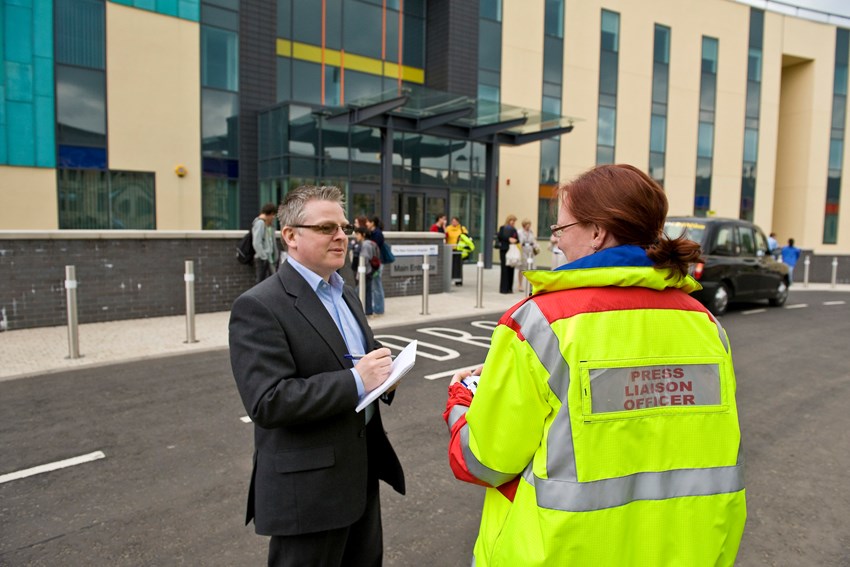Previous
Administrative assistant
You’ll need a college or degree-level qualification in communications, journalism, public relations, or marketing to become a communications officer in the NHS.
Communications officers help NHSScotland Boards to engage with their local communities, employees, other health and social care organisations, schools, the Scottish Government, and the media.
They also provide public health information and promote health and social care services, education, and training initiatives to internal and external audiences.
Communications officers use different types of media, including:
They are employed in all NHS Boards across Scotland.

To get on a college or university course that could lead to a career as a communications officer, useful subjects include:
Speak to your guidance teacher about subjects offered at your school.

You may find it helpful to get some healthcare experience by doing a work placement or volunteering. You’ll get training, increase your knowledge, and learn new skills. This could help you when applying to university, college or a new job with NHSScotland.
Most universities accept a wide range of qualifications, so you could apply directly from school or go to college first.
At college, useful courses for a career as a communications officer include:
Widening participation supports adult learners who want to go to university. If you’re an adult with few or no qualifications, you could get into higher education through the Scottish Wider Access Programme (SWAP). Many universities also provide access programmes to help you get the degree entry qualifications you need.
If you choose to go to university, relevant degree subjects include:
Another route to a career as a communications officer is to apply for a Modern Apprenticeship. You'll get the training and experience you need for the role, and an industry-recognised qualification.
Modern apprenticeship opportunities:
Find out more about becoming an apprentice.
As a communications officer, you'll be the lead contact for engagement, marketing, and communications for an NHSScotland Board.
You'll work in a team, with other communications and marketing professionals, including digital marketing assistants and public relations managers.
Tasks include:
You'll need these skills:
As a communications officer, you'll work with:
Communications officers work in an office, or remotely.
During your career, self-directed learning will provide opportunities to learn new skills and gain qualifications. You’ll be able to apply to more senior roles as you progress.

Discover the skills and qualifications you’ll need for each role and what the work will be like.
Explore careers
Our blog includes how-to guides, case studies, and career resources.
Discover more